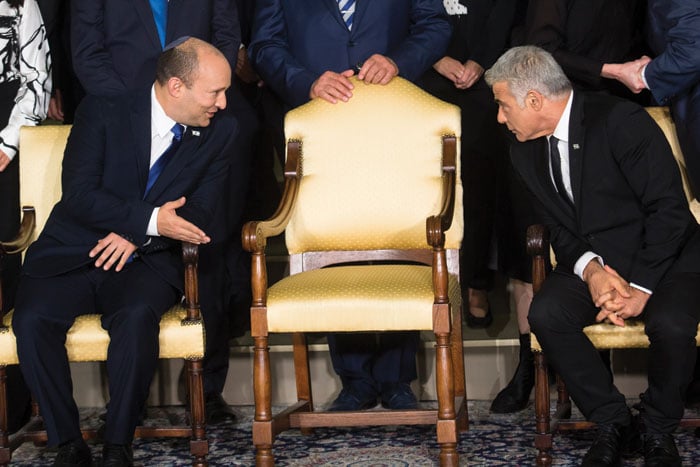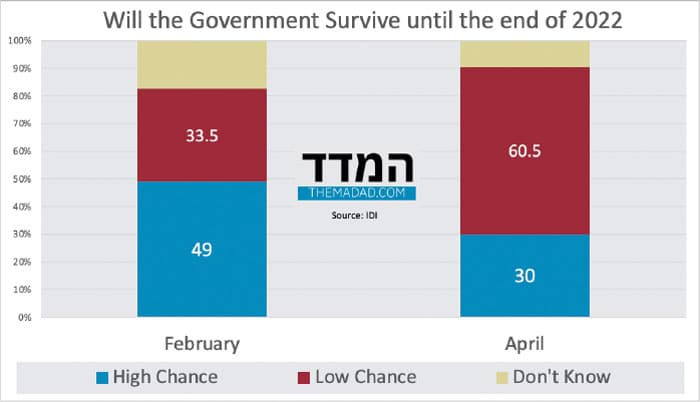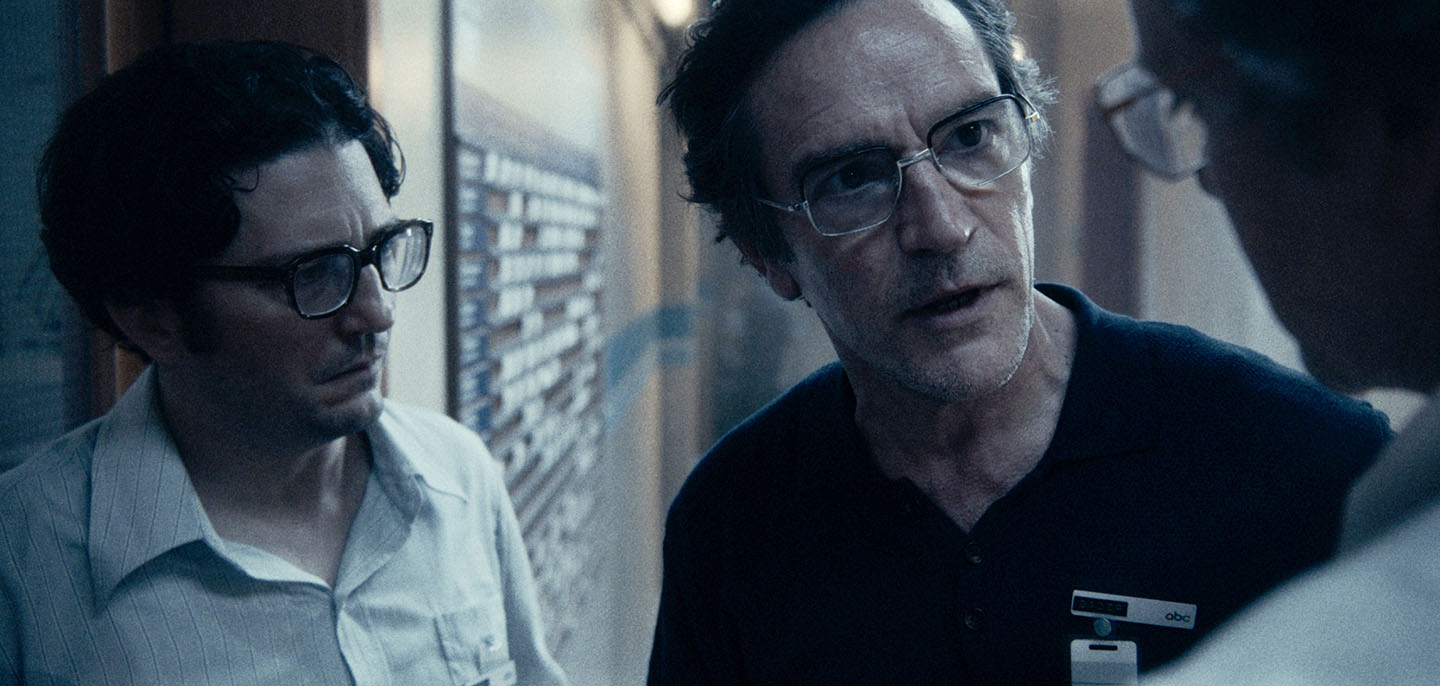
From Israel’s coalition point of view, the situation is clear: we must keep it going, for as long as possible. Nothing good is waiting for us, coalition members, if we crumble. No improvement is expected in circumstances, in jobs, in opportunities to have impact. Some parties will find themselves outside the Knesset. Some MKs will end a short, inglorious, career. It is better for the coalition to pull the limping cart. Better to pull and hope that something happens. Perhaps a turnaround in the Benjamin Netanyahu trial, perhaps a change in Mansour Abbas’ mood, perhaps a change in reality that will tighten the ranks again. Something.
From the point of view of Israel’s opposition, the situation is also clear: We must topple the coalition as soon as possible. Not all members of the opposition are enthusiastic about a government — another round of government — led by Netanyahu. But everyone has strong motivation to compromise on such outcome. The Zionist Religious Party wants to disband Bennett’s party and win over some of its electorate. The ultra-Orthodox parties want to regain their budgetary sway. The Arab Joint List has an interest in proving that Islamist Raam was wrong when it joined the coalition.
What is the public’s interest? The public has political preferences. It also has non-political issues on its agenda. It has a long-term and substantial interest in a having stable government. Clearly there is no good coming out of a situation of volatile government that changes once a year. This is not good, even in the eyes of those who want the coalition to fall.
What is the public’s interest? It also has an interest in having a functioning coalition. It has an interest in having a coalition that is capable of governing, taking the initiative, planning ahead, legislating. A shaky coalition, which is mainly concerned with survival, and whose leaders are navigating it in dubious ways, mainly for the sake of survival, is not a coalition that serves the public. Not even the public that voted for it.
If this is a coalition doomed to collapse, and until then mainly engage in awkward maneuvering, it would probably be better for it to fall.
So, in a week that could determine the future of the coalition (as I write, I don’t yet know if an initial vote to have a new election has passed) the public interest includes two conflicting components. One in support of continuation of the coalition, one in support of its rapid dissolution. It all depends on the coalition’s prospects for staying in power. If this is a coalition doomed to collapse, and until then mainly engage in awkward maneuvering, it would probably be better for it to fall. If this is a coalition that has a way of surviving in the medium or long term, keep planning, keep legislating, it probably better survive. All this is the public interest, detached from political preferences. But as we know, every voter has a political preference that dictates his or her true will.
What do these voters want?
Opposition voters say that every day of the Bennett-Lapid government is a bad day.
Coalition voters say: Every day without Netanyahu is a good day.
This is what is left of the Bennett-Lapid coalition. In fact, to begin with, the coalition’s main adhesive was the wish to remove Netanyahu. But as long as the coalition had a majority, it could set itself additional goals, such as changing budgetary priorities, or changing policies in other areas, or passing reforms that were not possible during the previous regime. But from the moment the coalition lost its majority, a few weeks ago, it lost the essential ability to set an agenda, to shape reality. All it was left with is the power to postpone. This remains the coalition’s purpose — postponing Netanyahu.
Is this a sufficient reason for having a coalition? Public opinion polls tell us that many coalition voters say yes. They support the coalition mostly for this reason — Labor and Meretz voters, who reconciled with the idea of a right-wing Prime Minister Naftali Bennett; right-wing voters who agreed to partner with Ra’am and Meretz. The voters of these parties believe that a semi-functioning government, a coalition on the edge, is better than a return to Netanyahu. They are willing to give up on all reforms, on long-term planning, on legislation, provided that Netanyahu does not return to being the Prime Minister. That’s how much they fear his return. That’s how much they despise him.
This is a challenging situation. A difficult and depressing situation for many of the coalition voters. If their wobbly coalition chariot disintegrates it’s not clear what they’ll do with their disappointment and despair. So, if more elections come, they will be bitter and nasty. They will be characterized by blatant rhetoric, dramatic warnings, and a looming sense of doomsday. Thus, if they come, there is no reason to rejoice in them. There is no reason — both for those who support the coalition, and for those who support the dissolution of the coalition. There is no reason to rejoice in them — for those who support the State of Israel.
Something I wrote in Hebrew
Here’s what I wrote on abortion in the U.S. and it’s relevance to Israel:
What is happening in America proves that the sanctity of the Supreme Court is an ideological fiction, promoted by those whom the court stands by at a particular moment. Here in Israel, the left sanctifies the court. Why? Because it seems to them that the court serves goals close to its heart and protects Israel from degenerating into a social and moral catastrophe. In America, the situation is reversed: The court is now a darling of the right. Why? Because it seems that the court serves purposes close to its heart and protects America from degenerating into a social and moral catastrophe. In both cases, it is not the institution that matters, but rather the contemporary position of its members. The Israeli left should remember that a very strong court can one day become a court that frustrates the left. The Israeli right should keep in mind that a weak court will not be able to rule in favor of the right when its members are more aligned with the right’s ideals.
A week’s numbers
Will the current coalition survive until the end of the year? In February, most voters said yes; in April, most said no.

A reader’s response:
Miriam Davids writes: “Mr. Rosner, America is in big trouble. Israel mustn’t rely on us no more.”
Shmuel Rosner is senior political editor. For more analysis of Israeli and international politics, visit Rosner’s Domain at jewishjournal.com/rosnersdomain.






















 More news and opinions than at a Shabbat dinner, right in your inbox.
More news and opinions than at a Shabbat dinner, right in your inbox.